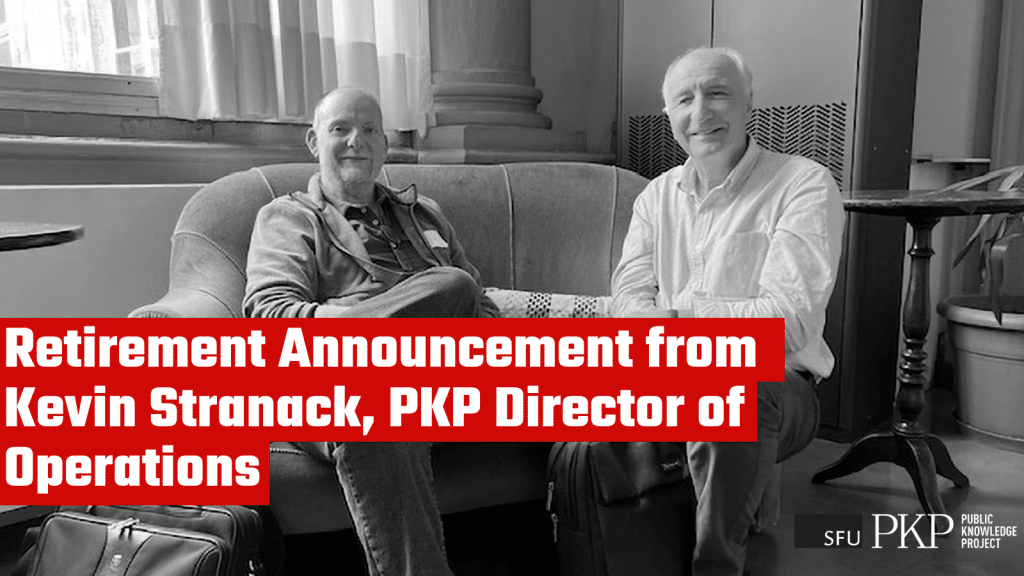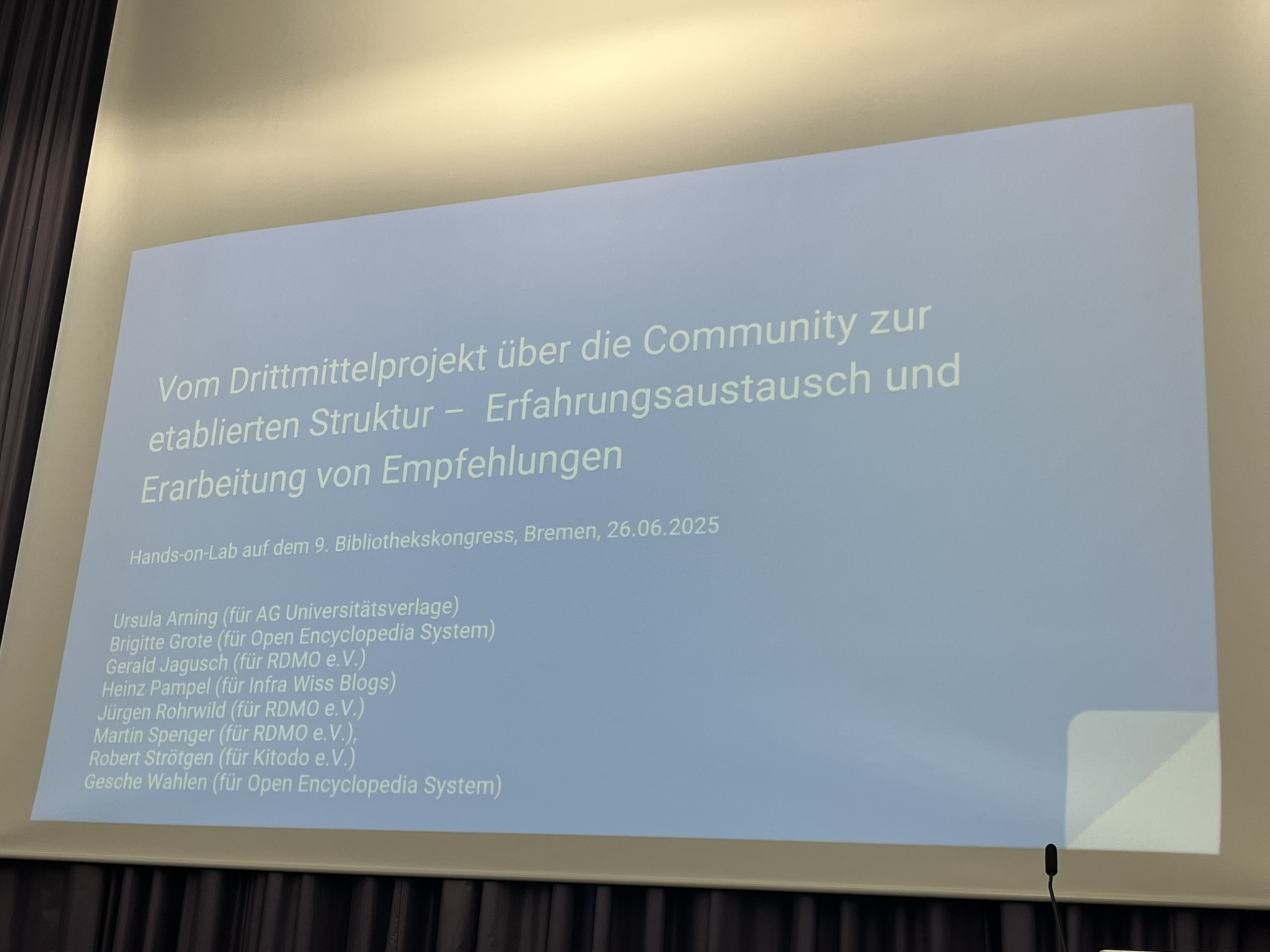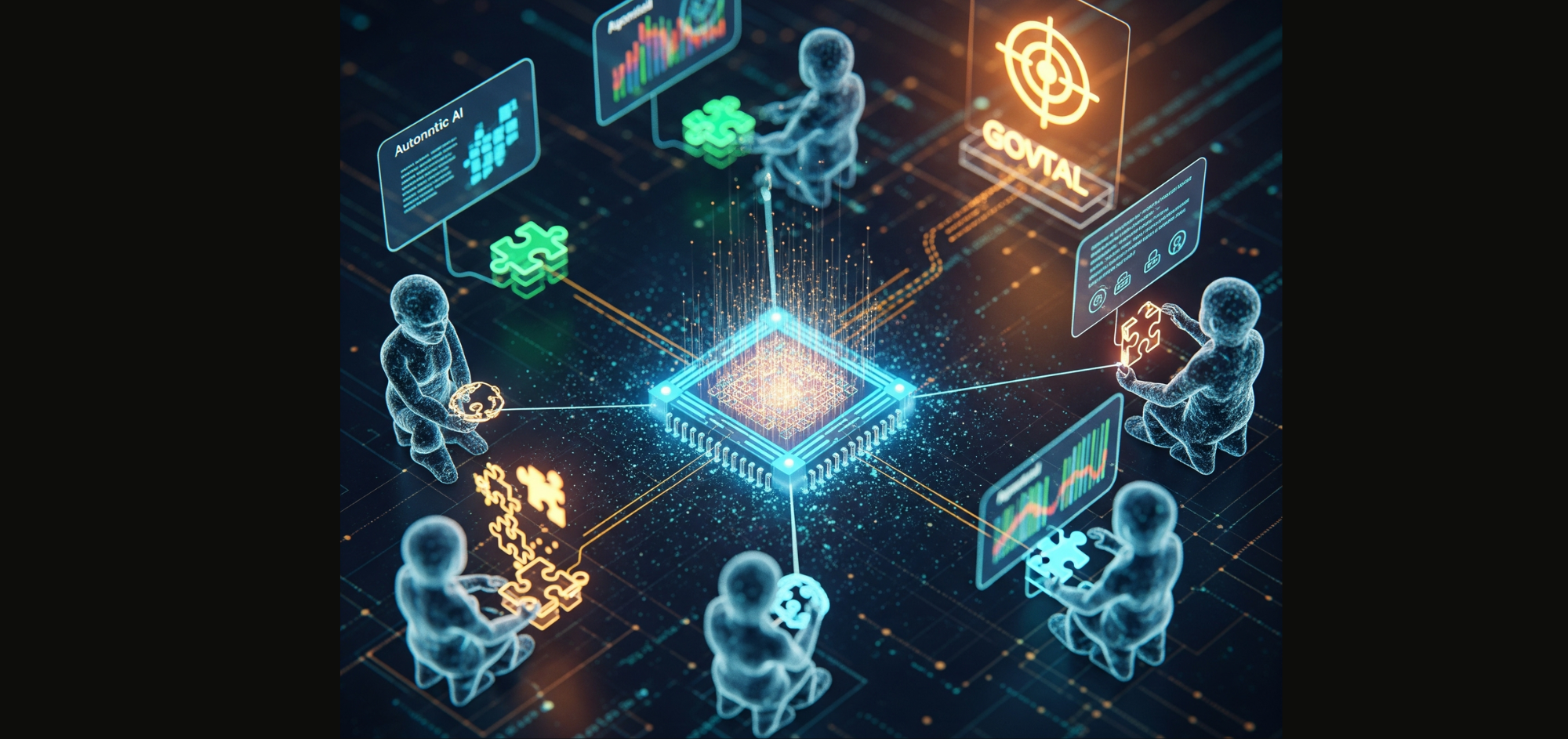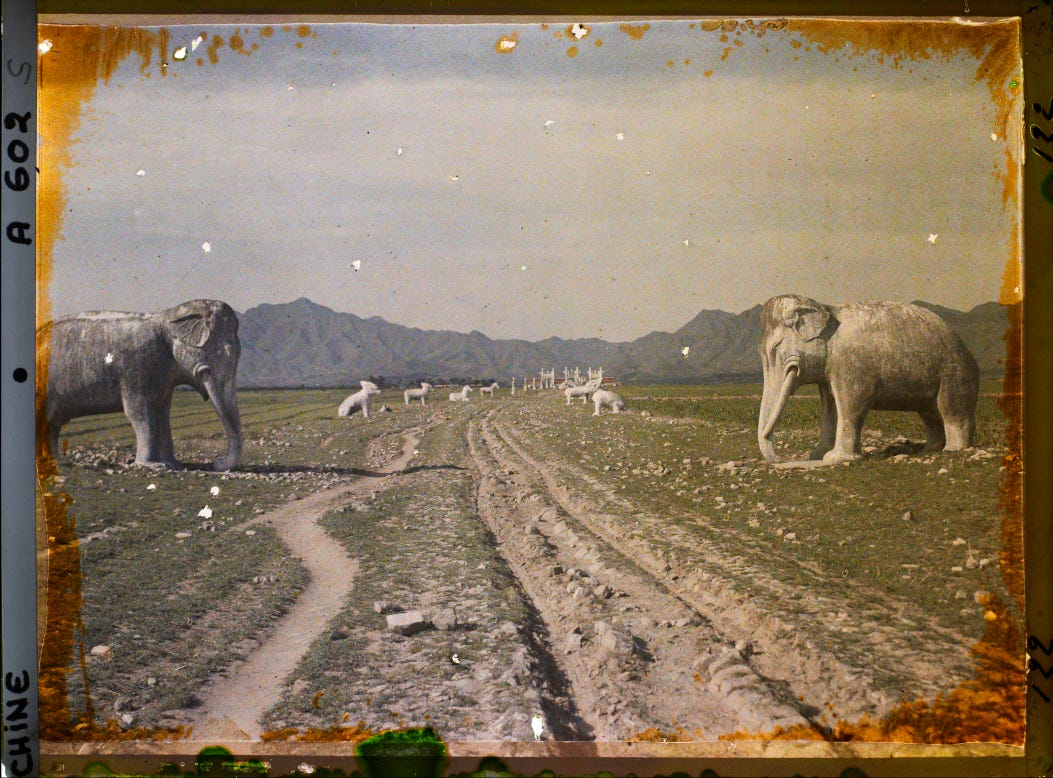Birthdays, BOSC, Beatles and Bioinformatics with a Merseybeat Conference season is upon us, and the GigaScience team have just returned from a magical mystery tour to Liverpool. Regular readers will know GigaScience launched at the ISMB (International Conference on Intelligent Systems for Molecular Biology) in 2012, and every year we attend and celebrate our birthday at the meeting.
Rogue Scholar Gönderileri

After much reflection, the time has come for me to retire, effective at the end of this year. This marks the end of a deeply fulfilling chapter in my life — one filled with purpose, collaboration, and a shared commitment to open knowledge and community-driven progress in open source, open access publishing.

Wie wird aus einem geförderten Pilotprojekt eine dauerhaft tragfähige Infrastruktur? Diese zentrale Frage stellten sich viele der Teilnehmenden des Hands-on-Labs „Vom Drittmittelprojekt über die Community zur etablierten Struktur – Erfahrungsaustausch und Erarbeitung von Empfehlungen“ (Arning et al. 2025) auf dem 9. Bibliothekskongress / der 113. Bibliocon in Bremen am 26.06.2025.

The DinoCon brochure — really a conference guidebook, with schedule, speaker list, vendor list, maps, etc. — is a free download here. Art by Natalia Jagielska. DinoCon is right around the corner, the weekend of August 16-17. The speaker lineup looks fantastic, and the vendor lineup looks like it will execute a Chicxulub on my wallet. On the speaker side, I’m happy to see sauropods getting so much representation.

I’ve written several times here about the Make Data Count project and its major output to date, the Data Citation Corpus, currently at version 4 (see The fourth release of the Data Citation Corpus incorporates data citations from Europe PMC and additions to affiliation metadata). In June Make Data Count launched a Kaggle Competition with the goal of developing a tool that will process articles (in either PDF or XML format), extract data
BIOinformación para investigación y práctica digital en BIOtecnología Recientemente hemos recibido un buen número de estudiantes de biotecnología interesados en realizar su servicio social, su práctica profesional o su tesis en el laboratorio de BIOinformación. La biotecnología investiga e innova en las aplicaciones técnicas de la biología (Ng &

Introduction AI has evolved drastically over time. AI agents started off as elementary programs based on if-then rules without any extra learning capabilities. They were reactive . You give them an input, they give something back. Early chatbots, spam filters all fell under this category.

Eine von Ammianus Marcellinus überlieferte Anekdote berichtet, dass der römische Stadtpräfekt Leontius einen aufgebrachten Mob, der angeblich aufgrund von Weinmangel auf die Straße gegangen war, allein durch die Macht des Wortes besänftigte und so die Verhaftung der Rädelsführer ohne Blutvergießen ermöglichte. 1 Die beschriebene Szene eröffnet nicht nur Einblicke in den Klassismus und Elitarismus des römischen Geschichtsschreibers
Es gibt einen neuen Meilenstein der Förderung der Open-Access-Transformation auf der Ebene der Bundesländer. Denn im Juli legte das Land Mecklenburg-Vorpommern eine eigene landesbezogene „Open-Access-Strategie für Wissenschaft und Forschung in Mecklenburg-Vorpommern“ vor, in der Open Access als „eine zentrale Säule der digitalen Transformation der Hochschulen und von Wissenschaft und Forschung insgesamt“ verstanden wird.

I’ve written a lot about Ollama here. Ollama lets you run open-weight models like Llama, Gemma, Mistral, Qwen, DeepSeek, etc. on your own computer. You don’t have to pay for a frontier model like ChatGPT, Claude, or Gemini, and all the inputs and outputs stay on your computer, minimizing any privacy and security concerns. Until recently Ollama was a command-line only tool.

When we study societal collapse, we typically examine it through the lens of elites. Using the records and remains left by emperors, nobles, and the literate classes who had the most to lose when their world ended. But what if we’ve been asking the wrong question all along? After years of reviewing collapse literature ranging from quantitative databases like Seshat to case studies spanning millennia, certain patterns emerge again and again.